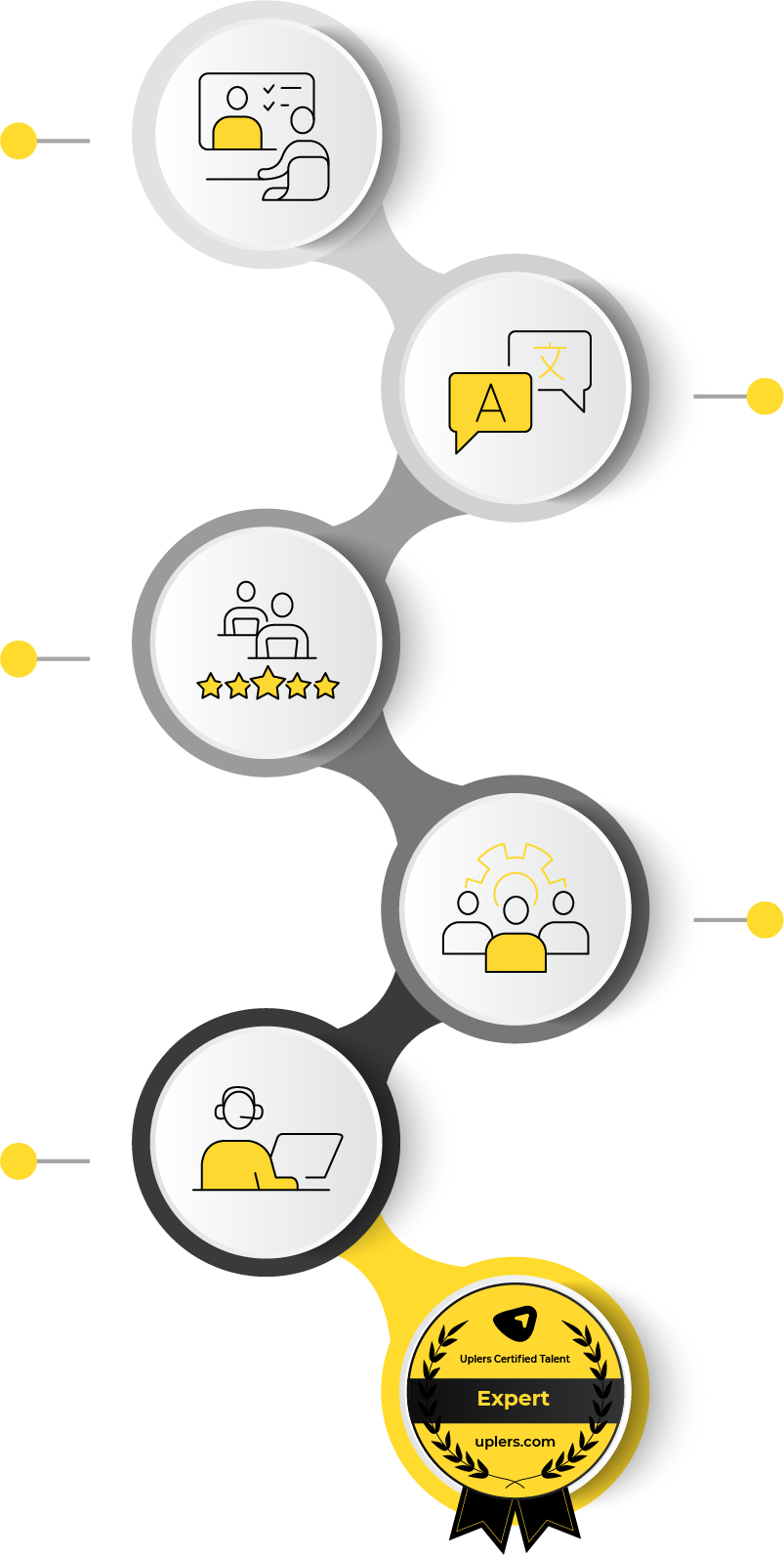Without a solid and thought-out back-end program, the user side is set up for failure. And, of course, you can’t do the back end better than with Java. What skills to look for when hiring a Java developer?
When hiring a Java developer, you need to find someone who thinks quickly on their feet when it comes to Java development. Java is an object-oriented language. So the Java developer should know the principles well. They should also learn how to apply them when programming.
Hire Java developers who have a grip over the complete Java ecosystem. This includes the Java Virtual Machine (JVM), the Java Development Kit (JDK), and the Java Runtime Environment.
They should also be familiar with Java-based web services for better software development.
If you’re hiring a senior java developer, then the ability to write optimized and clean code is paramount. Hire dedicated Java programmers who have a good understanding of multithreading and synchronization.
Technical skills are vital for top Java programmers. Here are some questions you can ask to test the technical knowledge of Java developers.
Top 5 technical questions to ask when you hire Java Web Developers
How does Java enable high performance?
Expect something like:
This is one of the best questions to ask dedicated Java developers. The Just-in-Time compilation enables high performance in Java. The JIT compiler compiles codes with similar functionality, reducing the total time.
It's a good sign if your candidate is further able to explain Java bytecode and how JIT works to compile that into native machine code.
Explain the OOPs concepts.
Expect the following:
Object-oriented programming aims to implement real-world entities like inheritance and polymorphism that Java developers must be well aware of. The main aim of OOP is to combine a piece of data and the function that relies on this data. This is so that no other part of the code can access this data.
For this question, hire Java developers who have an understanding of the topic and not just the textbook answer. They should know that Java is based on OOP to improve code readability and reusability.
Further, you should expect a brief explanation of the 6 concepts of Java development which are:
- Object
- Class
- Abstraction
- Inheritance
- Polymorphism
- Encapsulation
What makes Java a Write Once Run Anywhere (WORA) program?
The ideal answer for Java developers should be:
JVM is the reason why Java is a WORA program. In Java, the program is converted to bytecode rather than code understood by the Hardware. The bytecode can be run on any machine with JVM, making it a WORA language.
Here, you can also expect the Java programmer to explain why languages like C and C++ aren’t WORA programs in Java development.
What are the differences between Interface and Abstract Class?
This is a question appropriate if you’re interviewing senior Java developers.
Before explaining the differences, your Java programming candidate should start by explaining what Interface and Abstract classes are. It can be a brief answer as simple as the following:
The interface is a blueprint used to implement a class. The interface does not contain any concrete methods that have codes.
The abstract allows you to create blueprints for concrete classes. An abstract class should have at least one abstract method. But it can also contain concrete methods.
Some key differences between the abstract class and interface class are that interface is slow while the abstract is fast. In the interface, you can’t define any fields. But in the abstract, you can define fields and constants.
There are also different places where both classes should be implemented. If the candidate is able to tell you where to implement which class, it signifies that they have an understanding of the classes.
You can also ask the candidate for a sample code for both the interface and abstract class.
Can you explain Method Overriding in Java?
Overriding is a feature allowing a subclass to provide an implementation that’s already provided by a super-class. When hiring a dedicated Java Programmer, they should be able to tie this answer back to Run Time Polymorphism.
But a command over just the technical side of things isn’t enough. In fact, when you hire Java programmers, make it a point to test their problem-solving skills. You can ask Java developers these 5 exploratory questions.
5 Exploratory questions to ask when hiring Java developers.
What would you say is the best Java program you’ve worked on? Explain it in detail.
This question tests the impressions the candidate has on themselves. It’s easier to get a programmer to talk about their success than their failure. So you can expect an in-depth answer.
Also, with the functionalities of the program they’ve worked on, you can test how skilled the Java developer is.
Do you have any professional experience apart from Java that helped you excel in this industry?
If the candidate has worked on only Java since the beginning of their career, that’s okay. But if they’ve not, it’s a good idea to get an understanding of their previous experiences.
And if Java developers can tie past professional knowledge into their current industry, it’s a good indication that they can adapt to new methods and even programming languages if required.
Was your Undergraduate Major relevant to this position?
It so often happens that a candidate’s major doesn’t match the job they’ve applied for. This is acceptable as long as they have relevant experience. But it’s a good idea to know why they chose a major and then jumped ship.
Further, if the major is too far off from Java, you can suggest and ensure they take relevant courses to have the best Java subject knowledge.
Do you prefer front-end or back-end development? Explain why.
Java is a program meant for back-end web application development. But a full-stack Java developer should be able to do both. And if a Java developer prefers front-end development, you can tell they’ll be good at both.
Basic knowledge of UI/UX designing is mandatory if you’re hiring a full-stack Java developer.
When working in a team, what is the role you tend to take?
The answer to this question will tell you if you’re hiring a leader or a follower. This is useful if the role you’re hiring for has potential for growth.


































































![How to Hire an SEO Expert from India: Guide for Hiring Managers [+SEO Specialist Job Description Tips and Salary Analysis]](https://www.uplers.com/wp-content/uploads/2024/03/How-to-hire-an-SEO-expert-from-India-Guide-for-hiring-managers-Job-description-tips-and-salary-analysis-436x265.jpg)

